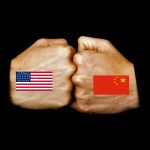Using De Minimis Legislation to Your Advantage: Preparing for International Trade
This is a guest post by Martina Sanchez
 In the 21st century, global trade is booming. E-commerce has allowed goods to criss-cross the world in ever-increasing amounts, and online businesses are starting to build international trade into their strategies.
In the 21st century, global trade is booming. E-commerce has allowed goods to criss-cross the world in ever-increasing amounts, and online businesses are starting to build international trade into their strategies.
One barrier to this has always been shipping. But in 2016, the US raised the de minimis rate to $800.
De minimis is the value threshold under which goods are duty exempt – which means a greater amount of goods can pass through customs at a quicker, and cheaper, rate.
For US consumers, it means that there are greater incentives and choices in buying abroad. For traders, it is an opportunity to prepare your business for an increase in international trade.
International Developments
As part of the ongoing trade negotiations, de minimis has become a talking point that it is worth taking note of. Other countries are starting to follow suit, such as South Korea, Colombia, and Peru.
Alice Lloyd, entrepreneur and business writer at Last Minute Writing and Researchpapaersuk, says: “It is an implementation to create a diverse marketplace, with products passing across borders at more frequent and more inexpensive rate.”
So how do you prepare your business for international commerce?
Check Your Target Market’s Customs
There’s nothing more frustrating to an international customer than being landed with an additional shipping fee which is far higher than they were expecting. Once an individual has had an experience like this it is very difficult to recover that business and the market they form a part of may start to dwindle if there are repeated instances.
“It is a good idea to understand the country’s de minimis level. You may find that your products are not under the de minimis threshold, and therefore your target market presents a barrier to good commerce,” adds Cindy Lambert, editor in chief at Draftbeyond and Writinity.
If you want to find out a country’s de minimis level, you probably already have a resource: your parcel carrier. Your parcel or shipping provider will have access to a large amount of information regarding international customs and it’s worth utilizing that knowledge as part of your business plan.
Check the Demand
As with many commercial considerations, it is good practice to know how your target market interacts with your product. No one is going to buy your product if they can get it at a lower cost and higher quality locally.
Researching your target market is a way of prospecting for sales, and you might even find a way to break new ground if you identify a market still untapped.
Automate Your Business
When setting up your international shipping, you can utilize shipping software to automatically calculate your shipping costs and pass the figure on to your customer. People will often be hesitant to action their purchase if they fear that there’ll be hidden costs, so be upfront and honest about the shipping, even if the target country has a restrictive de minimis threshold.
You will find tools that can automatically present different shipping options to the consumer, putting the cost and delivery time in their hands.
Something that is not likely to change is the requisite for international traders to provide accurate and up to date invoices, sometimes in multiple copies. But this is getting easier, and it’s worth investing in electronic invoicing systems to save on paperwork.
Don’t Try To Be Smart!
Finally, something to bear in mind regarding de minimis regulation.
It might be tempting to try and get around the regulation by segmenting your product for shipping so that it falls under the threshold. If you are caught doing this, you may be barred from exporting to a particular country, which in turn damages trade ties, something that might result in litigation.
This was a guest post by Martina Sanchez.
About the Author

Martina Sanchez is an entrepreneur and content marketing specialist at Lucky Assignments and Gum Essays. She is absorbed with article writing and is a constant contributor to her blog, where she touches such topics as digital marketing, SEO tips and tricks, etc.




